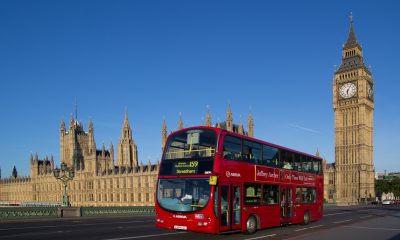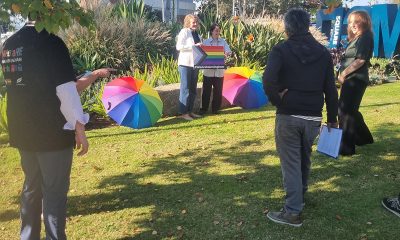United Kingdom
Boris Johnson’s LGBTQ rights advisor criticizes advocacy groups over conference cancellation
Nick Herbert acknowledges episode damaged UK ‘global reputation’
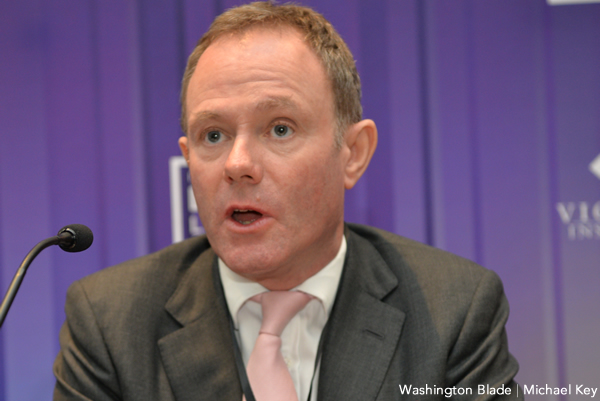
British Prime Minister Boris Johnson’s advisor on LGBTQ issues on Sunday issued a lengthy statement in response to the boycott of the government’s Safe to Be Me Conference that prompted its cancellation.
Nick Herbert, a member of the British House of Lords, in his statement described the conference’s cancellation as “damaging to the government and to the U.K.’s global reputation.” Herbert added it is “also an act of self-harm by the LGBT lobby.”
The conference was to have taken place in London from June 29-July 1.
The British government cancelled it last week after more than 100 British LGBTQ rights groups announced they would boycott it in response to Johnson’s decision to exclude transgender people from a conversion therapy ban. LGBT Business Champion Iain Anderson on Tuesday resigned over the issue.
Here is Herbert’s entire statement.
The Safe To Be Me equality conference was to be a global first, bringing governments, businesses, parliamentarians, faith leaders and activists together to discuss how to advance LGBT rights across the world. Our focus was on ending violence, advancing decriminalization in the 71 jurisdictions where homosexual conduct is still a crime, ensuring access to HIV/AIDS treatments, and building the economic case for inclusion.
We had remarkable speakers lined up and exciting plans for a new public-private fund to support LGBT groups in countries where they need our help. There was enthusiasm from governments and organizations planning to attend, often indicating they would bring new announcements or commitments to progress LGBT rights. We aimed to drive real action globally, and one major government had already indicated that they would hold a successor event to take agreed initiatives forward.
The conference’s cancellation is damaging to the government and to the U.K.’s global reputation. But it is also an act of self-harm by the LGBT lobby. Having orchestrated the boycott which brought the event down, Stonewall now claims to be “truly sad that the government does not feel in a position to run the UK’s first global LGBT+ conference,” adding that this shows a lack of concern for equal rights. Crocodile tears will be of little consolation to brave human rights defenders in countries where the right to wave a rainbow flag without being arrested is a distant dream.
LGBT groups were understandably dismayed, as was I, when a promised conversion therapy ban was suddenly dropped and then only partially reinstated just hours later. The bill will no longer extend to trans people, reflecting concern that more time is needed to ensure that legitimate therapies to help young people with gender dysphoria are not inadvertently criminalized. I believe such concerns can be allayed. Helping people come to terms with who they are is not the same as setting out to take them in one direction or the other — that is not therapy, it is ideology, and it can do irreparable harm.
It is quite possible that Parliament will decide to include trans people in the new law, as many other countries have done, for instance in Canada, where Conservative MPs unanimously supported the fast-tracking of a ban. But we must address the concerns and make the case for change, deploying the evidence and reassuring parliamentarians that a ban which include trans people is a safe and justifiable course to take.
Some of those who have raised their voices in Parliament about trans rights are reactionaries who opposed reforms such as equal marriage. But others are not. They are decent, middle-of-the-road politicians who supported gay rights but have genuine concerns that gender ideology may have gone too far, and that women’s rights and children must be protected.
Opinion research tells us that the public is sympathetic to trans people, and wishes to be kind, but has concerns about certain issues such as the safety of women in single sex spaces and especially the fairness of trans women competing in elite women’s sports. Our laws already allow for sensible balances to be struck to meet these concerns: Exemptions to the Equality Act allow single sex spaces to be protected, trans women prisoners to be placed in special wings, and sports bodies to set rules which may exclude trans competitors. Calm explanation of the facts and discussion on the right boundaries of these compromises is needed.
But social media, the rise of identity politics and the bitter polarization of every issue does not lend itself to rational discussion. When the prime minister expresses concerns, in reasonable terms, about issues such as fairness in sport, he is not being “transphobic”, as Stonewall immediately branded him. Nor is he alone, and growing disquiet across the political spectrum cannot sensibly be swept aside.
In the days when it was winning, the LGBT lobby made a compelling case for change, engaging successive governments and briefing parliamentarians. Now it is organizing boycotts and shouty protests. A fortnight ago in Manchester, a protester held up a trans flag with the words “some women have penises.” It is hard to imagine a surer way to lose a public argument. For days afterwards, politicians struggled to say whether they agreed, or could define what a woman is. A sensitive, complex debate is being reduced to ugly, dehumanizing talk about body parts.
Some may tell the government that this is a political opportunity for a wedge issue, but this would be deeply unwise. It is one thing to make an issue of statue-toppling and historical revisionism, another to appear to be attacking minorities and vulnerable people. It is also a misreading of public opinion. People want to hear solutions: they don’t see these issues through an ideological lens.
We must not allow a descent into a political mire which is dominated by extremes and which suffocates the reasonable middle ground. Across the Atlantic, this debate has become toxic, with hideous and persecutory anti-trans laws being passed by state legislatures. That is not who we are. We have to find a way to take the heat out of this debate.
I believe we now need a Royal Commission to examine these issues dispassionately. Its members would have to be truly neutral for such an inquiry to work: It could be led by a senior judge. It would need to be set up with cross-party support and without predetermination of its direction or outcome. Weighing the evidence on contested areas such as sport, safe spaces for women, and gender identity services for children and young people — building on the work of the independent Cass review — would be a better way to detoxify the debate, protect trans people from being caught in the political crossfire, and find the common ground we need.
No one will win from a culture war on these issues, and those most harmed will be trans people who already feel stigmatized, people who are different yet just like us, human beings who deserve greater kindness than today’s politics will permit.
United Kingdom
Four UK Pride organizations ban political parties from events
Statement notes Supreme Court ruling that excludes trans women from legal definition of woman
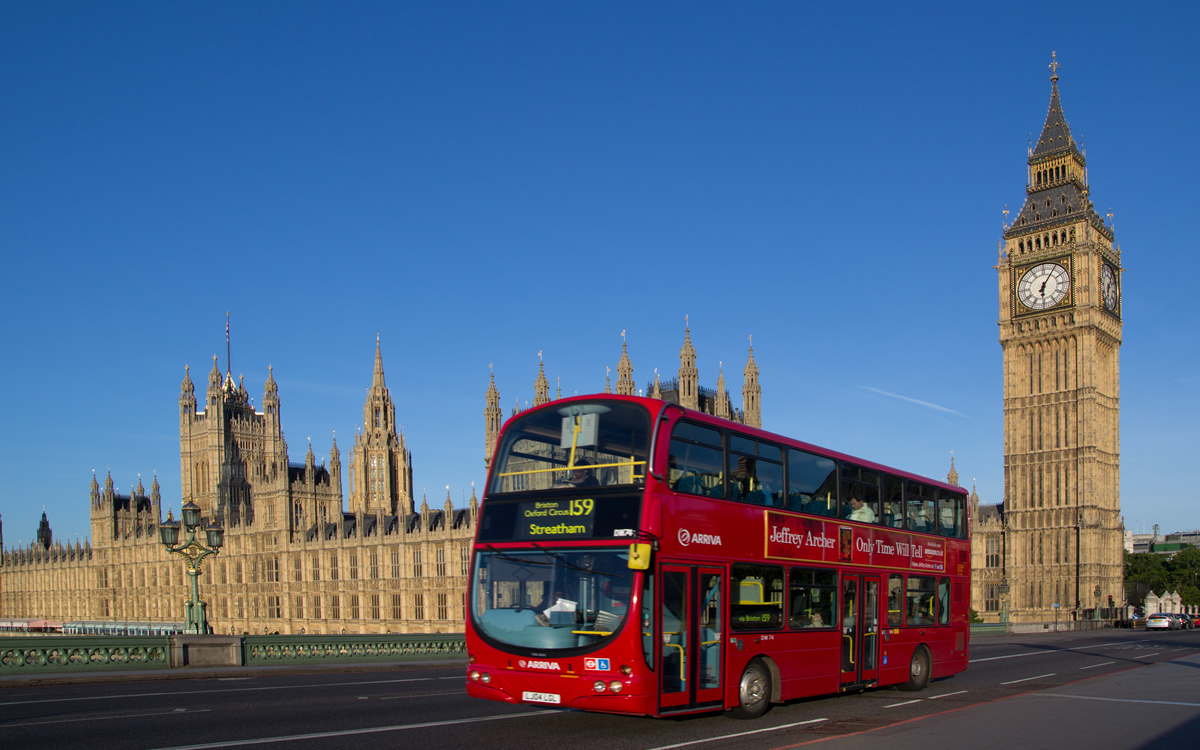
The organizers of four of the largest Prides in the U.K. have banned political parties from their events.
A statement that Pride in London, Manchester Pride, Birmingham Pride, and Brighton Pride issued on Thursday specifically notes last month’s U.K. Supreme Court ruling that said the legal definition of a woman is limited to “biological women” and does not include transgender women.
“The recent ruling by the U.K. Supreme Court to exclude trans women from the definition of the term ‘woman’ underscores the urgent need for immediate action,” reads the statement. “In this moment, we choose to stand firmer, louder, and prouder in demanding change that protects and uplifts trans lives.”
British Prime Minister Keir Starmer after the ruling said “a woman is a biological woman” under the country’s 2010 Equality Act that bans discrimination based on sexual orientation and gender identity.
The Pride organizations in their statement did not specifically reference Starmer and his comments. They did, however, announce they are “collectively suspending political party participation in our Pride events.”
“Know that this is not a symbolic gesture,” reads the statement. “It is a direct call for accountability and a refusal to platform those who have not protected our rights.”
The groups also made the following demands:
• Full and enforceable protections under the Equality Act
• Timely and dignified access to NHS (National Health Service) gender-affirming healthcare
• A reformed, accessible Gender Recognition Certificate process
• Sustainable funding for trans-led services and support organizations across the U.K.
“This is the minimum,” said the groups. “Anything less is not allyship, it is abandonment.”
“Our main parties have let us down and need to re-earn their place in our marches,” said Peter Tatchell, a long-time LGBTQ activist from the U.K. who is the director of the Peter Tatchell Foundation, in a newsletter that his organization publishes. “Pride is a protest.”
United Kingdom
UK Supreme Court rules legal definition of woman limited to ‘biological women’
Advocacy groups say decision is serious setback for transgender rights
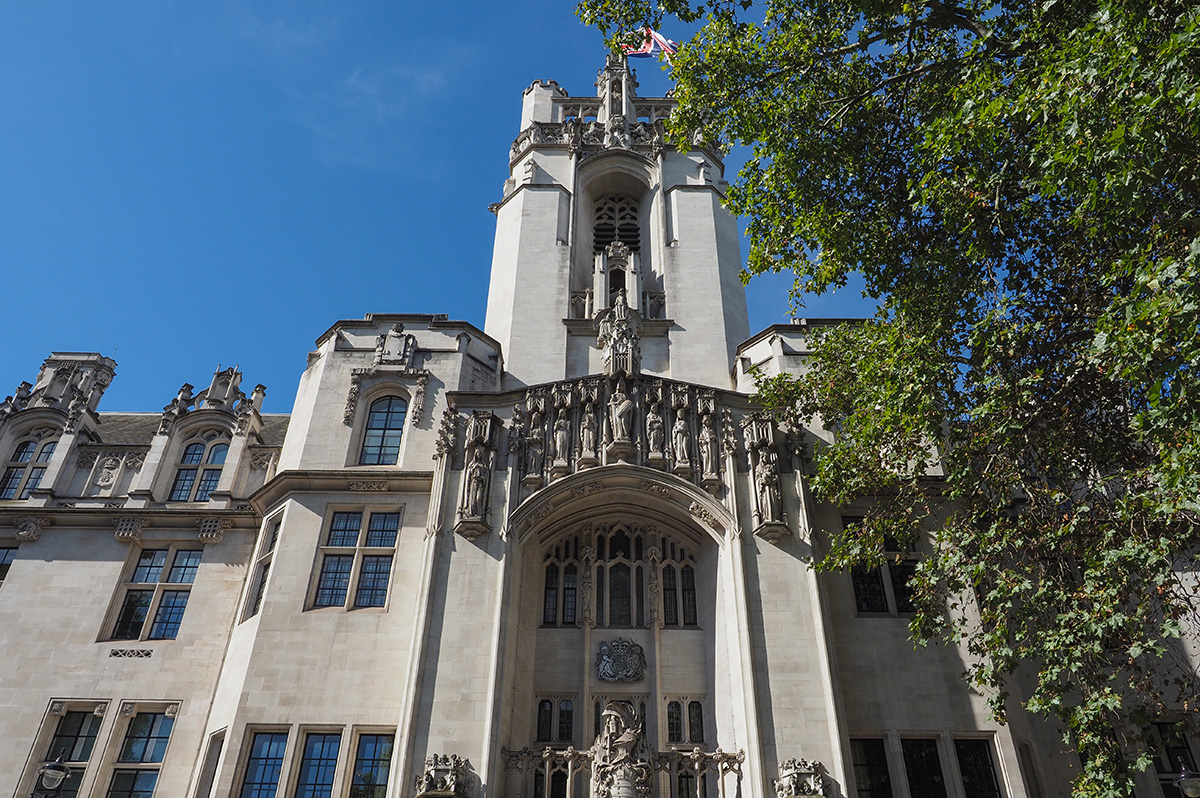
The British Supreme Court on Wednesday ruled the legal definition of a woman is limited to “biological women” and does not include transgender women.
The Equality Act that bans discrimination based on sexual orientation and gender identity took effect in 2010.
Scottish MPs in 2018 passed a bill that sought to increase the number of women on government boards. The Supreme Court ruling notes For Women Scotland — a “feminist voluntary organization which campaigns to strengthen women’s rights and children’s rights in Scotland” — challenged the Scottish government’s decision to include trans women with a Gender Recognition Certificate in its definition of women when it implemented the quota.
Stonewall U.K., a British advocacy group, notes a Gender Recognition Certificate is “a document that allows some trans men and trans women to have the right gender on their birth certificate.”
“We conclude that the guidance issued by the Scottish government is incorrect,” reads the Supreme Court ruling. “A person with a GRC (Gender Recognition Certificate) in the female gender does not come within the definition of ‘woman’ for the purposes of sex discrimination in section 11 of the EA (Equality Act) 2010. That in turn means that the definition of ‘woman’ in section 2 of the 2018 Act, which Scottish ministers accept must bear the same meaning as the term ‘woman’ in section 11 and section 212 of the EA 2010, is limited to biological women and does not include trans women with a GRC.”
The 88-page ruling says trans people “are protected by the indirect discrimination provisions” of the Equality Act, regardless of whether they have a Gender Recognition Certificate.
“Transgender people are also protected from indirect discrimination where they are put at a particular disadvantage which they share with members of their biological sex,” it adds.
Susan Smith, co-founder of For Women Scotland, praised the decision.
“Today the judges have said what we always believed to be the case, that women are protected by their biological sex,” she said, according to the BBC. “Sex is real and women can now feel safe that services and spaces designated for women are for women and we are enormously grateful to the Supreme Court for this ruling.”
Author J.K. Rowling on X said it “took three extraordinary, tenacious Scottish women with an army behind them to get this case heard by the Supreme Court.”
“In winning, they’ve protected the rights of women and girls across the UK,” she added.
It took three extraordinary, tenacious Scottish women with an army behind them to get this case heard by the Supreme Court and, in winning, they’ve protected the rights of women and girls across the UK. @ForWomenScot, I’m so proud to know you 🏴💜🏴💚🏴🤍🏴 https://t.co/JEvcScVVGS
— J.K. Rowling (@jk_rowling) April 16, 2025
Advocacy groups in Scotland and across the U.K. said the ruling is a serious setback for trans rights.
“We are really shocked by today’s Supreme Court decision — which reverses 20 years of understanding on how the law recognizes trans men and women with Gender Recognition Certificates,” said Scottish Trans and the Equality Network in a statement posted to Instagram. “The judgment seems to have totally missed what matters to trans people — that we are able to live our lives, and be recognized, in line with who we truly are.”
Consortium, a network of more than 700 LGBTQ and intersex rights groups from across the U.K., in their own statement said it is “deeply concerned at the widespread, harmful implications of today’s Supreme Court ruling.”
“As LGBT+ organizations across the country, we stand in solidarity with trans, intersex and nonbinary folk as we navigate from here,” said Consortium.
The Supreme Court said its decision can be appealed.
United Kingdom
Current, former PinkNews staffers accuse publisher, husband of sexual harassment
CEO Anthony James suspended from NHS job after allegations became public

Thirty-three current and former employees of an LGBTQ news website in the U.K. have accused its publisher and husband of sexual harassment and misconduct.
The BBC on Tuesday reported “several” former PinkNews staffers saw Chief Operating Officer Anthony James “kissing and touching a junior colleague who they saw appeared too drunk to consent” outside of a London pub after a company event.
James’s husband, Benjamin Cohen, founded PinkNews in 2005.
The BBC reported the current and former staffers with whom it spoke said “a culture of heavy drinking led to instances when” Cohen and James “behaved inappropriately towards younger male employees.”
Stephan Kyriacou, who worked at PinkNews from 2019-2021, told the BBC that Cohen slapped him on his butt at a Christmas party.
“I just shut down for a minute. I didn’t know what to say. I was in shock,” Kyriacou told the BBC. “I remember turning to my friends and saying, ‘What the hell just happened?'”
The BBC spoke with PinkNews staffers who said “they were shouted at and belittled by Mr. Cohen, and that there was a ‘toxic’ culture at the company. Others said they saw “misogynistic” behavior.
Neither Cohen, nor James spoke with the BBC. The Washington Blade has reached out to PinkNews for comment.
Media reports indicate Bedfordshire Hospitals NHS (National Health Service) Foundation suspended James, who is a doctor, from his job after the allegations against him and Cohen became public.



